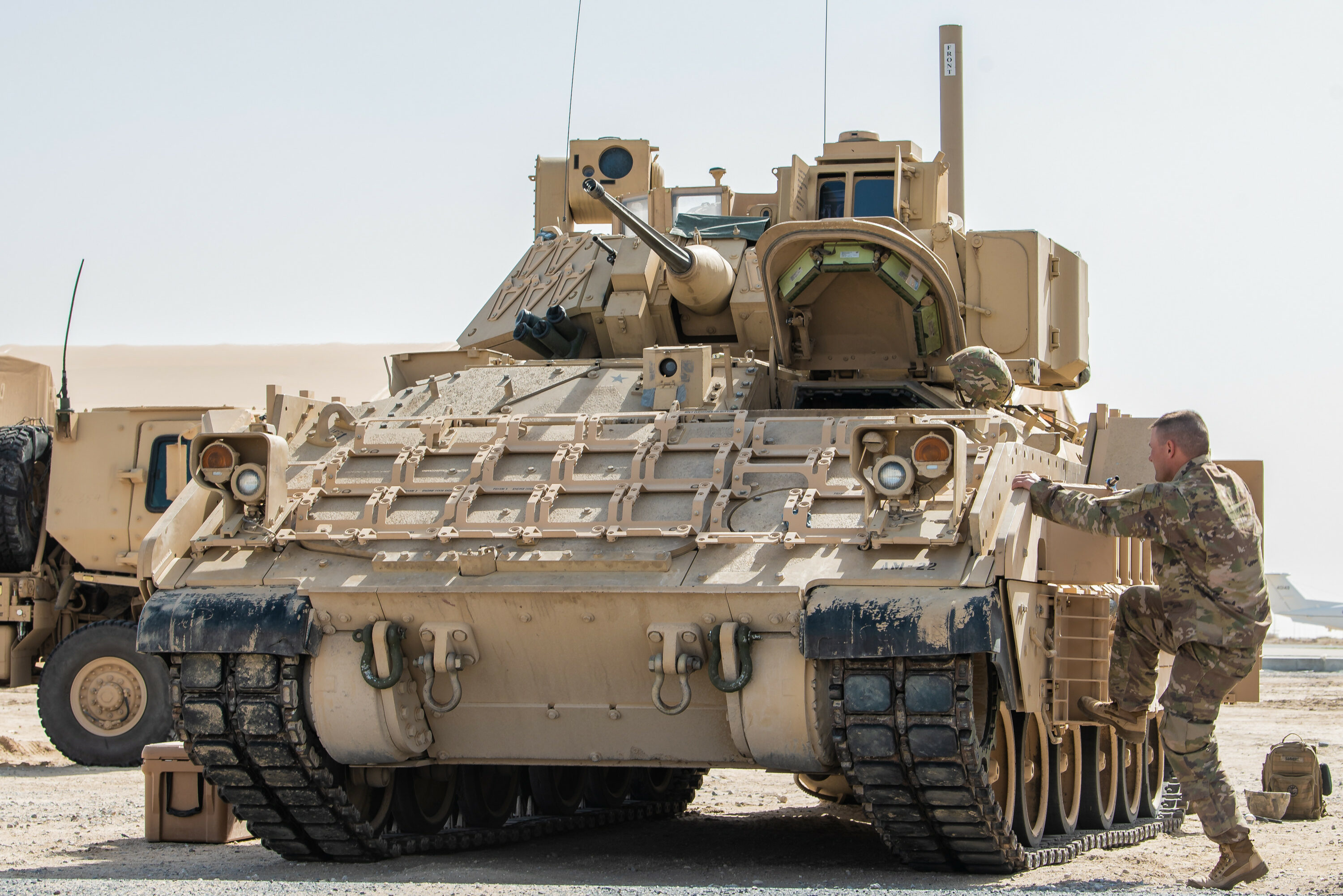
A U.S. Soldier from the 2nd Platoon, Alpha Company, 1/163rd Combined Arms Battalion, inspects a Bradley M2A3 Fighting Vehicle at Ali Al Salem AB, Jan. 27, 2022. (U.S. Air National Guard photo by Staff Sgt. Chloe Ochs)
On August 21, a security advisor to Iraqi Prime Minister Mohammed Shia al-Sudani denied any military buildup by the United States-led coalition in the country.
In statements to the official Iraqi News Agency, the advisor, Khalid al-Yaqoubi, said that “there is a rotation of American units present in Syria.”
Referring to negotiations carried out by an Iraqi security delegation, led by the minister of defense, in Washington last week, al-Yaqoubi said that the Iraqi leadership, in its negotiations with the Americans, focused on preserving Iraq’s sovereignty.
“We have secured all our demands in the Washington negotiations,” he said.
The advisor added that “Baghdad and Washington have reached an agreement allowing the operation of drones in secure areas solely with the approval of the Iraqi government.”
“We have also agreed to establish a joint military committee between the two parties to counter the threat of ISIS,” he revealed.
In recent weeks, images and videos showing significant U.S.-led coalition activity in Iraq surfaced on social media. Several Arab news reports talked about a plan by the coalition to attack forces backed by Iran’s Islamic Revolutionary Guard Corps along the country’s border with Syria.
Commenting on these news reports, al-Yaqoubi said that a lot of “misleading information” had been disseminated in the media.
“There is no troop buildup; rather, there is a replacement of American units that were present in Syria,” the advisor added.
Kata’ib Hezbollah, one of the largest Iranian-backed factions in Iraq, said in a statement on August 23 that the coalition’s recent activities are “clear evidence of the enemy’s arrogance.” Still, the group played down the size and capabilities of U.S. forces.
“If the resistance decides to fight, it will crush their malicious projects in the region so that Iraq will be their last stronghold in a multipolar world,” the statement reads.
Last week, the Pentagon denied any plans to attack Iranian-backed forces on the Iraqi-Syrian border and said that the coalition’s only mission in the region is to defeat ISIS. However, it didn’t provide any explanation for the increase in coalition activities in the two countries.
Neither side appears to be interested in a confrontation. However, the coalition’s activities could eventually lead to a clash with Iranian-backed forces in Iraq or Syria.
MORE ON THIS TOPIC:
- Turkish Drone Strike Targets Journalists In Northeastern Syria
- U.S.-Led Coalition Fighter Jets, Drones Continue To Violate Syria Airspace





